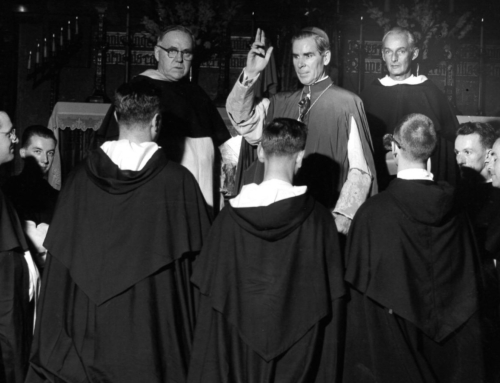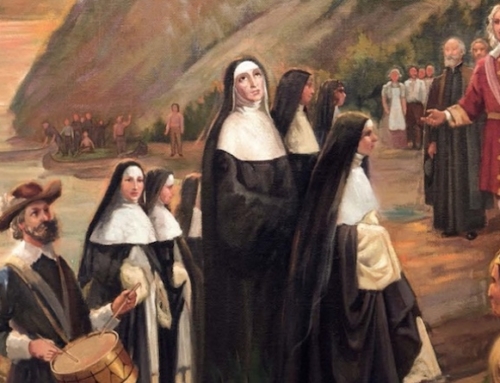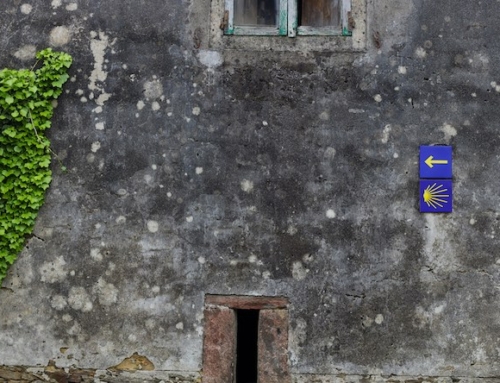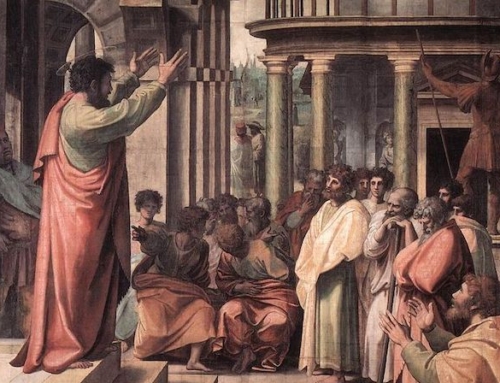Dear Friends,
Throughout the Lenten season, the online edition of the Dominicana Journal will begin a new initiative in the form of Dominicana Online Essays. Henceforward, four featured articles will be published on our website each month of the academic year in an effort to regularize certain topics and/or kinds of posts that we, as student brothers, produce. This initiative comes after an honest appraisal of feedback from our readers, who have generously and graciously offered comments and suggestions to the editors of the Dominicana Journal throughout the years.
By way of this initiative, we hope to produce posts of exceptional quality that can be used as resources by our readers well beyond the date of a given post’s original publication. The name of these four kinds of featured articles, as well as a brief description of their purpose and content, can be found below.
1) Forma Vitae ~ The Dominican life is a life worth living.
As the Latin suggests, each Forma Vitae (“Form of Life”) essay will touch upon the gift of our Dominican vocation, drawing upon the wealth of literature that has informed and continues to give shape to the particular life that we live as Dominican religious. We hope and pray that it provides accessible, insightful, and revealing commentary about the Dominican life and vocation.
2) Panis Vivus ~ The Eucharist is the source and summit of the Christian life.
The impetus for the Panis Vivus article is quite simple. It is our collective response to the 2019 Pew Research Center survey, which reported that only a third of United States Catholics believe in the Real Presence of Jesus Christ in the Eucharist. Each Panis Vivus (“Living Bread”) essay will thereby focus on some aspect pertaining to the mystery of the Eucharist. Suffice it to say, the article will convey, in no uncertain terms, that the Eucharist is really and truly the body, blood, soul, and divinity of Our Lord Jesus Christ.
3) Lectio Divina ~ The Sacred Scriptures are to be lived and prayed.
With the Gospel reading from the upcoming Sunday Mass as its principal source-text, each Lectio Divina (“Sacred Reading”) essay will offer a prayerful meditation of the Sacred Scriptures—one which draws from the wealth of biblical literature, as well as the prayer life of the individual author. In terms of resources, the article will rely upon biblical commentaries of both the ancient and modern variety.
4) Sed Contra ~ The culture should not be ignored but engaged.
The purpose of the Sed Contra (“on the contrary”) is to engage a contemporary, cultural concern, and to address it with the help of some philosophical or theological principle/authority. The content of a Sed Contra post is not meant to be a political piece, nor is it meant to be an expression or endorsement of opinion; rather, each Sed Contra post is meant to evaluate/analyze a cultural trend, event, perspective, or idea in and through the light of faith.
Each of the four featured articles will be published in the same manner as other Dominicana posts. As such, the featured articles will simply enter our regular rotation/schedule of online posts, though the formatting of Dominicana Online Essays may introduce some variety in our presentation of online material.
We hope that you enjoy and even come to look forward to the publication of Dominicana Online Essays.
Know of our prayers for you and your loved ones during this blessed season of Lent.
Sincerely yours in Christ,
The Editors
✠
Photo by Patrick Fore on Unsplash







